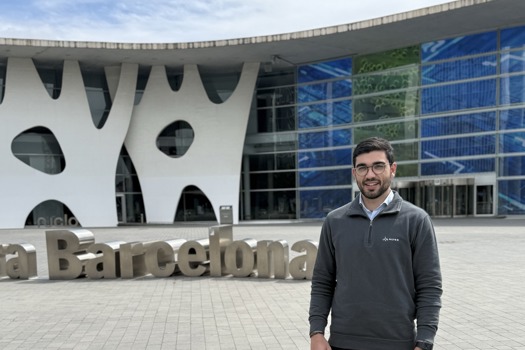The UK-headquartered business has filed figures for the six-month period to 31 December 2016, along with a trading update for the first eight months of this year.
There are no comparatives because this is the first time Walstead has formally consolidated its operations in the UK, Spain, and Austria/Central Europe. The group now employs more than 2,400 staff across five countries, and has opted to report in euros as its continental operations make up the largest part of the business.
Group sales in the six-month period were just over €260m (£231.7m), with EBITDA (earnings before interest, taxes, depreciation and amortisation) of €36.6m and an underlying operating profit prior to restructuring and other costs of €22.1m.
Walstead described itself as “the largest and most profitable independent web offset printing business in Europe” and has a stated aim to become the biggest.
Walstead UK [Wyndeham Group] posted an operating profit of €9.1m on sales of €67.1m for the period. UK EBITDA was €12.7m.
In his chairman’s statement Mark Scanlon described the UK performance as “excellent” in the light of last year’s tumultuous events surrounding the collapse of Polestar, which resulted in the creation of Wyndeham Bicester.
“I cannot recall a time in the UK web offset and gravure industry when there has been so much upheaval involving tens of millions of pounds of print work having to be moved from one printer to another within a few weeks and, in some cases, days,” he said.
“And for all the work we took on, we did not miss one deadline – so thank-you for the hard work and tireless dedication put in by our UK team and the trust placed in us by our new ex-Polestar customers. We look forward to being of service to you for many more years.”
The accounts also reveal that Walstead’s deal with Time Inc (UK) to keep the Bicester plant going involved the publisher loaning the group £10m, over a five-year term at an interest rate of 8%.
Wyndeham’s sole supplier deal to print all of Time’s UK titles also runs for five years.
Walstead’s Iberian businesses had a “mixed” six months, with sales of €65.7m and EBITDA of €7.1m. Main rival Heliocolor shut down, which resulted in an influx of work to gravure operation Eurohueco. But the resulting unfavourable work mix hit gross margins, although Scanlon said the operation was now back on track.
Spanish web offset business Rotocobrhi improved its performance on the prior year.
Scanlon said that last year’s appointment of former CirclePrinters chief executive José Maria Camacho had “greatly enhanced” the prospects for the Spanish business.
The group’s biggest operation is Walstead Central Europe. This was formed through the spring 2016 acquisition of Leykam Let’s Print, which is the biggest printer in Austria with operations in Austria, the Czech Republic and Slovenia. It posted EBITDA of €16.2m on sales of €127.3m.
Scanlon said Central Europe was a key target for growth “both organically and through acquisitions”, and said there were “manifold” acquisition opportunities for the group in mainland Europe.
For the first eight months of 2017 Walstead had unaudited turnover of €308.4m and adjusted EBITDA of €32m. It expects to have sales of circa €500m for the year.
The report also points to the group’s “strong cash flows and debt repayment”. Net debt at 31 August 2017 was €131.6m.
The business has also made additions to its senior team. Ron Marsh, the founder and former chief executive of plastic packaging group RPC has become a non-executive director. And former Travelex and Payzone executive Julian Rothwell came on board over the summer, with a strategic finance remit to help the group with its M&A ambitions.
Private equity house Rutland Partners invested £34m in Walstead last May, taking a 53% stake in the group.










